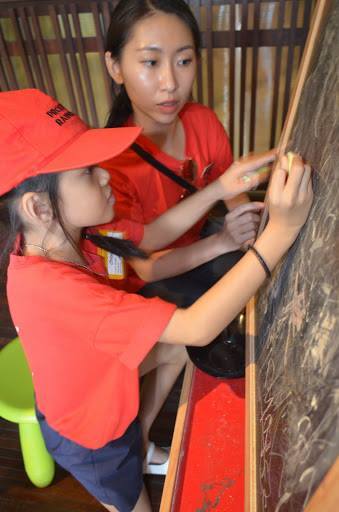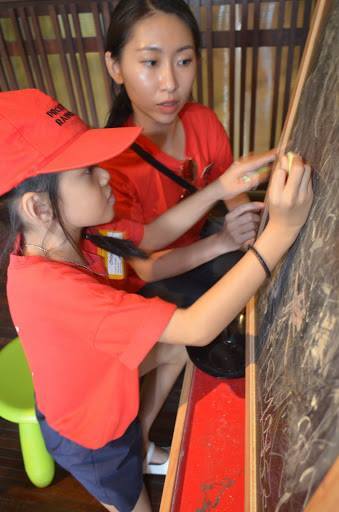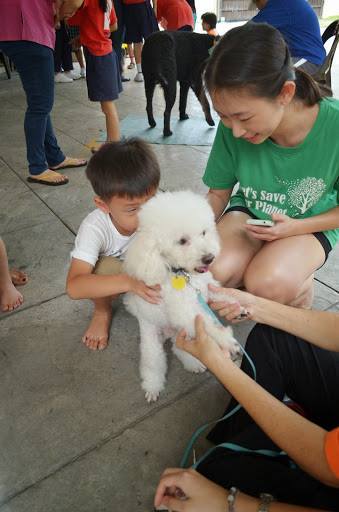Special education is an integral part of the overall education sector. It’s the practice of educating students with special educational needs.
Eileen Soon is an educator who specializes in teaching this unique population – diverse learners and individuals with special needs. Graduating with a degree in Special Education from Liberty University, Eileen taught at St Christopher’s International Primary School, Malaysia as their special education coordinator working with children with mild to moderate learning difficulties.
There, she introduced social-communication groups for individuals on the Autism Spectrum. Later, she joined a private center for individuals with special needs to teach individuals with moderate to severe disabilities, setting up vocational training programs that build their skills There, she set up a vocational training program that not only gave students the opportunity to use real life experiences to build their skills but also bridged the gap between them and the community. This program enabled students with special needs be seen and heard, and brought about Autism awareness to people in the community. She is currently completing her Masters in Special Education at San Francisco State University where she obsesses over the ocean and blogs about her educational escapades.
We spoke to her about her views on special education.
S: What’s your background?
E: I was born and raised in Malaysia. I remember school being very textbook and test driven. We rarely did any hands-on learning. I spent 8 months in a public school in Colorado when I was 8 years old because my father was doing his Masters and I was amazed at how fun school could be. We had field trips, there were dress up days, I had never experienced anything like that before. I think that was probably when I started thinking about learning and how exciting it could be.
S: How did you get into special education? What sparked your interest?
E: I had thought about going into education and also thought about speech therapy. Education is so broad, I knew I needed to find a focus. A school for children with special needs opened up in my city and my dad suggested that I should go and volunteer since it is almost a cross between speech therapy and education. I volunteered there for two months – fell in love with these fascinating human beings!
S: You mentioned coming up with a vocational program that ended up impacting the community. Tell me about that.
E: I was working at a center for children with special needs in Penang, Malaysia, where we had a class of 13 to 19 year olds who were academically focused but, for some of them, going to university was not an option. They wanted to work instead. My team and I brainstormed ways we can help them. Sandwiches came to mind! We felt that sandwiches were quick and easy to make and easy to learn. So we coached the students every step of the way – from shopping for ingredients, food preparation, to setting up the pop-up store, greeting customers, money handling – we broke down every step for them. We went to a prominent hospital and set up a pop-up store to sell to doctors, nurses and patients. We were surprised by how well the community received the students! People started asking us questions and we started a conversation about autism and special needs. The students, instead of being shy and reserved, rose to the occasion and took ownership of the store, giving customers a rundown of what they were selling, who they are and why they were there. Many commented about knowing a friend with a child with special needs and finding new found hope that these individuals have a bright future ahead of them – what they see here with the sandwiches was only the beginning. This sort of boundary breaking is exactly what our community needs.
S: If you had the power to do anything, how would you choose to advance special education?
E: Anything? Not specifically for special education, but education in general, but if anything were possible, I think I would love to have a reality TV show showcasing educators presented with challenges that they had to overcome. I envision it to be like Master Chef or Project Runway, but for education. If it works for food and fashion, why not education right? Teachers would have to get creative with their lessons, tackle learning differences, manage behaviors with the resources available and get judged! It brings about awareness, brings education to the limelight and will produce “teachies”, or “teachanistas” (foodies and fashionistas). If someone wants to start a show like that, hit me up!
S: What are areas in which Special Education can continue to expand in?
E: Education is going through (or desperately needs to go through) a metamorphosis, to put it mildly. It’s form and functionality are being questioned by many successful creative minds of today. It seems that school success does not equate success in life; on the contrary, we see individuals who did not finish college, (Steve Jobs, Richard Branson, Mark Zuckerberg) go on to find their passions, hone their skills and impact the world. The question isn’t whether education is important because everyone knows it is fundamental in life. The question, however, is whether schools today are relevant and properly equipping the students of this generation.
There is scrutiny on what these standards of “success” should be. Contemporaries like Carol Dweck, Sir Ken Robinson, Brene Brown and Reshma Saujani (as you can tell I’m a huge TED fan!) are echoing a similar theme – that creativity, innovation, tenacity and vulnerability are key in this generation, but the only way for that to happen is for the educational system to encourage it. Our system is not set up to build students to fail with a growth mindset, to teach tenacity instead of perfection, to admit to what they do not know and to be vulnerable enough to try something completely new, even if it means risking looking like an idiot. While there seems to be a great divide between the elements mentioned and keeping common core standards, I believe that with conversation between educational policy makers, and educators, students and parents, this dichotomy can be reconciled so that education can move forward.
If these shifts happen in education, it will inadvertently impact special education because education will be communicated, presented, interacted with and demonstrated with greater accessibility. Individual strengths and styles will be embraced more openly. ADHD may actually be celebrated (with effective strategies put in place) instead of medicated. The future of education and consequently, special education, is exciting if we dare to reimagine it.
S: It seems that you feel that education needs a revamp. What do you think first steps are that needs to be done?
E: Yes, I personally believe education is in dire need for a revamp. It has stayed the same for decades – power point lectures, exams, tests, quizzes – especially in Asia. Sir Ken Robinson, author, an advisor on education, states that students are going through life not really understanding what they’re good at because they haven’t done well academically. Now with the discovery of multiple intelligences, schooling still seems to only exalt and nurture a couple of those intelligences. I feel we need to examine why we’ve stayed the same through the decades. Is it the resources? Is it that policy makers are not listening to educators when policies are implemented? Is it the nation’s general outlook on the role of teachers? Is it the low salaries and low status views of teachers that is discouraging the highly qualified to step into education because it isn’t a viable, profitable, reputable career? Why does teaching have to continue to be viewed solely as this noble profession where monetary gains isn’t an important factor to consider? I believe we need to have these conversations for an educational revolution to happen.
S: What is the one most fundamental thing a student with special needs must learn?
E: To communicate. Over the years, I’ve come to see that communication is vital. Beneath many behavioral issues and academic disengagements is an issue of communication.
S: If you could be given anything to further your career in education, what would you ask for?
E: I’d ask for the chance to travel around the world to go into schools to see how different places run their schools. I’d love to visit urban schools, rural schools, radical schools, traditional schools. I’ve heard so much about schools in Finland and how they are among the best globally – I’d love to spend time in those classrooms to see what they’re doing right. Of course I’d love to examine how each country’s culture influences their approach to education.
— This feed and its contents are the property of The Huffington Post, and use is subject to our terms. It may be used for personal consumption, but may not be distributed on a website.
![]()

Source: Black Voices Huffington Post
Link: Eileen Soon: The future of special education is exciting if we dare to reimagine it


